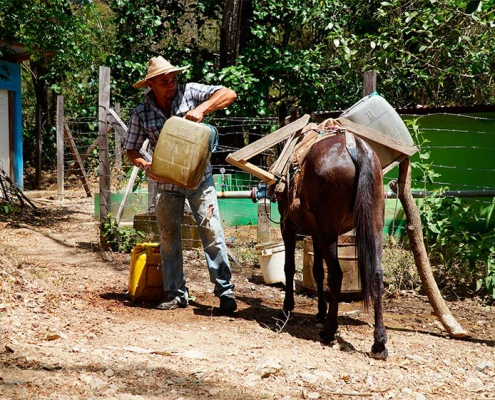
In addition to the programmes that arise within the Cooperation Fund for Water and Sanitation, with a budget from the State Secretariat for International Cooperation, the AECID carries out bilateral programmes with its own funds aimed at strengthening the water and sanitation sector in the various partner countries. Many of these programmes are, of course, carried out in coordination with the Water Fund and follow the same guidelines and approaches.
In Cuba, two bilateral programmes are being developed to complement and expand the Fund’s impact. One of them, developed with the National Institute of Water Resources, seeks to strengthen water management capacities through technical cooperation activities aimed at the sector’s main institutions and operators. The other programme, carried out in coordination with the Havana Bay Working Group, focuses on the treatment of industrial discharges in Havana Bay. These programmes open up new areas of collaboration aimed at improving the technical and management capacities of government institutions with competencies in the water sector.
Colombia hosts a bilateral programme called Methodological Proposal to Identify the Population in a Situation of Social Vulnerability, to make them beneficiaries of the minimum subsistence water subsidy, in Bogotá D.C. It consists of a bilateral AECID grant of 96,000 euros awarded to the District Habitat Secretariat of the Mayor’s Office of Bogotá, which provides 24,000 euros as a counterpart. The objective is to establish a roadmap for the implementation of the minimum subsistence water subsidy for the city of Bogotá. This is a project that, despite its small budget, is highly strategic as the potential impact of its results will help to guarantee the human rights to water for the most vulnerable population groups in the city of Bogotá, paving the way for its replicability in other municipalities in Colombia.

